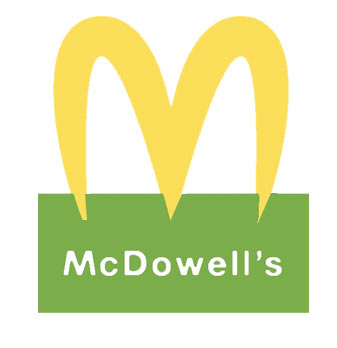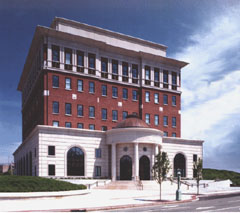 Our firm recently litigated a case in which another company admitted to infringing on the trade name of our client. A trademark is a name, symbol or other design used to identify goods or services used in commerce. An example would be “Coca-Cola” for soft drinks. To legally protect a trade name, the first requirement is generally registration with the United States Patent and Trademark Office. Registering a trademark will enable a trademark owner to legally prevent other businesses from using said name for similar goods and services. There are many requirements for registration, and our firm is experienced in registering trade names and designs on behalf of our clients, many of whom own small businesses in Westchester County and the surrounding geographic area.
Our firm recently litigated a case in which another company admitted to infringing on the trade name of our client. A trademark is a name, symbol or other design used to identify goods or services used in commerce. An example would be “Coca-Cola” for soft drinks. To legally protect a trade name, the first requirement is generally registration with the United States Patent and Trademark Office. Registering a trademark will enable a trademark owner to legally prevent other businesses from using said name for similar goods and services. There are many requirements for registration, and our firm is experienced in registering trade names and designs on behalf of our clients, many of whom own small businesses in Westchester County and the surrounding geographic area.
Once a name has been formally registered with the United States Patent and Trademark Office (“USPTO”), it is generally the job of the trademark owner (and their attorneys) to insure that another company is not infringing on that mark. Unfortunately, the USPTO is not a enforcement agency for trademark owners. Once it allows a mark to be registered, the trademark owner is generally responsible for commencing litigation against any other companies who may be infringing on the registered mark. For example, if our firm registers a trademark for “Debbie’s Deli” for restaurant services, and another deli opens in the immediate vicinity called “Debby’s Deli,” our firm would bring a trademark infringement action in the appropriate forum (usually United States District Court in White Plains), seeking an injunction against the infringing company, as well as money damages.
The general legal standard for infringement is whether an average customer would be likely to be confused into thinking the infringing name is the original protected company. If a Court finds infringement, there are several remedies that it can award. Most common would be an injunction (a Court order) against the infringing party forbidding it from continuing to use the infringing name. If the party violates the injunction, it can be held in contempt of Court.




 Many of us have seen the slick advertisements on television for reverse mortgages. An actor who is popular with our seniors will advocate the advertiser’s reverse mortgage program as a way to tap home equity and enjoy the “good life”, the long awaited vacation or purchase of a new car or boat. However, the reality of reverse mortgages can be quite contrary to these advertisements.
Many of us have seen the slick advertisements on television for reverse mortgages. An actor who is popular with our seniors will advocate the advertiser’s reverse mortgage program as a way to tap home equity and enjoy the “good life”, the long awaited vacation or purchase of a new car or boat. However, the reality of reverse mortgages can be quite contrary to these advertisements. New York City’s population density inherently gives rise to noise complaints by cooperative neighbors.
New York City’s population density inherently gives rise to noise complaints by cooperative neighbors.  The resurging real estate market brings with it the real estate “flipper”. A flipper is a person or entity that purchases property with the goal of renovating it for a quick sale at a substantial profit. The flipper never intends to occupy the property in the neighborhood. Recently,
The resurging real estate market brings with it the real estate “flipper”. A flipper is a person or entity that purchases property with the goal of renovating it for a quick sale at a substantial profit. The flipper never intends to occupy the property in the neighborhood. Recently,  Our readers may be aware of an
Our readers may be aware of an  A
A 
 Real estate transactions commonly involve the inclusion of title insurance policies. For the purposes of this blog post, we will be discussing title insurance obtained when a person purchases a house. Title insurance is a unique type of insurance, in that the events that are to be covered have already occurred. For instance, an automobile policy covers loss resulting from an accident that could happen after the policy is bound. On the other hand, title insurance covers acts that have already happened but not discovered prior to closing, such as a fraudulent deed in the chain of title.
Real estate transactions commonly involve the inclusion of title insurance policies. For the purposes of this blog post, we will be discussing title insurance obtained when a person purchases a house. Title insurance is a unique type of insurance, in that the events that are to be covered have already occurred. For instance, an automobile policy covers loss resulting from an accident that could happen after the policy is bound. On the other hand, title insurance covers acts that have already happened but not discovered prior to closing, such as a fraudulent deed in the chain of title. Our firm often fields inquiries from clients regarding residential lease situations. One common question relates to the right to renew an existing lease. This blog post will explain certain conditions which may apply to the renewal of a lease after it expires.
Our firm often fields inquiries from clients regarding residential lease situations. One common question relates to the right to renew an existing lease. This blog post will explain certain conditions which may apply to the renewal of a lease after it expires.  Our readers who follow politics know that members of Congress have battled in recent years with respect to revisions to the tax law. Specifically, estate, gift, and income taxes have been subject to adjustments. The purpose of this blog post is not to describe the
Our readers who follow politics know that members of Congress have battled in recent years with respect to revisions to the tax law. Specifically, estate, gift, and income taxes have been subject to adjustments. The purpose of this blog post is not to describe the